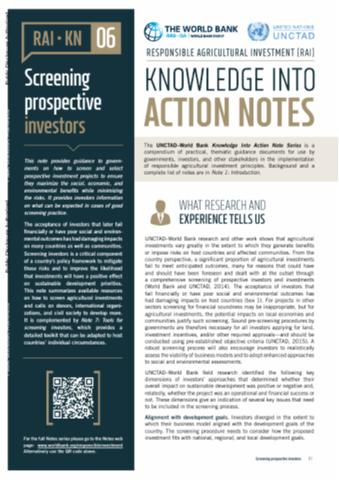6 - Screening Prospective Investors - Responsible Agricultural Investment (RAI): Knowledge into Action Notes series
Resource information
Date of publication
February 2018
Resource Language
Pages
6
License of the resource
This note is part of an Action Notes series and provides guidance to governments on how to screen and select prospective investment projects to ensure they maximize the social, economic, and environmental benefits while minimizing the risks. It provides investors information on what can be expected in cases of good screening practice.
Data Provider
Geographical focus




